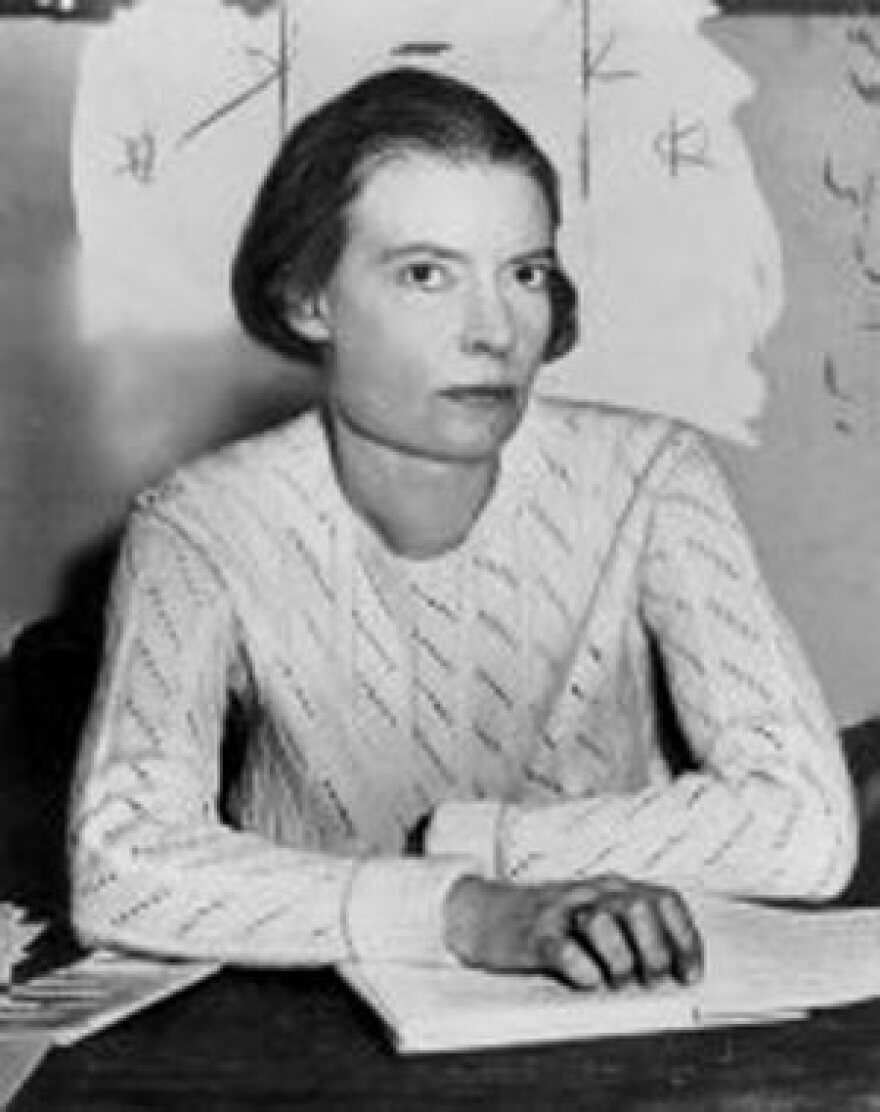As you may have noticed from the wall-to-wall news coverage, the Pope is in America. Today I tuned in to the Pope's historic address to a joint session of Congress, eager to hear what he had to say to America's leaders on the subject of poverty. As a Jesuit priest, serving the poor was a part of Pope Francis' work long before he was Pope Francis. But it wasn't his own work he mentioned in his speech to Congress. Instead, he talked about the work of Dorothy Day, an American activist and founder of the Catholic Worker movement.
Of course, I'd heard of Dorothy Day, but I have to be honest and say I didn't know much about her work. I spent a good part of today studying up.
Here are five things I learned about Dorothy Day:
1. She helped the poor.
This is the thing most people know about Dorothy Day, and it's why the Pope mentioned her today in his address to Congress. Day founded the Catholic Worker movement along with Peter Maurin, and the "work" part of the movement was all about the "Works of Mercy," which are a part of Catholic teaching.
Day herself was not a member of the Catholic clergy. The New York Times once described her as "the most influential layperson in the history of American Catholicism." Day wasn't even raised Catholic. But in the Works of Mercy, she found her calling as both a radical activist and a person of faith. The Catholic Worker set up soup kitchens and shelters throughout the country, and Day always lived among those she served.
2. She went to jail for for her beliefs, often.
One of the earliest mentions of Day in the New York Times occurred in 1917, well before she was known for co-founding the Catholic Worker. The 1917 article mentions Dorothy Day among a list of women who had been jailed for protesting for women's suffrage outside the White House. Time Magazine noted in its obituary of Day that she went to jail "a dozen times," first in 1917 and for the last time in 1973, while organizing for worker's rights.
3. She opposed war before it was cool in America.
Another time Dorothy Day was jailed for her protest actions came in 1955, when she and other members of the Catholic Worker protested an air raid drill in New York. Day was a dedicated pacifist, and in an article she wrote for the Catholic Worker newspaper, Day called the drill an act of "psychological war," and her protest was, in part, an act of penance for America's use of the atomic bomb in World War II. A generation later, millions of Americans would take part in protests against the Vietnam War, and Day would join them. But her pacifist protests had been going on long before hippies made it popular to say no to war.
But she didn't just oppose war. She worked actively on what she called the "exact opposite" of war, her works of peace, which included feeding and sheltering the poor. Here, she talks about the connection between her pacifism and her work to help those in poverty:
4. She opposed paying taxes.
In a piece published by the Catholic Worker in 1972, and made available online here, Day made her case against taxes:
One of the most costly protests against war, in terms of long-enduring personal sacrifice, is to refuse to pay federal income taxes which go for war. The late Ammon Hennacy, one of our editors, was a prime example of this. He earned his living at agricultural labor, always living on a poverty level so as not to be subject to taxes, though he filed returns. Another of our editors, Karl Meyer, recently spent ten months in jail for what the I.R.S. called fraudulent claims of exemption for dependents. He ran the C.W. House of Hospitality in Chicago for many years, working to earn the money to support the house and his wife and children. Erosanna Robinson, a social worker in Chicago, refused to file returns and was sentenced to a year in prison. While in prison she fasted and was forcibly fed. It will be seen that tax refusal is a serious protest. Wars will cease when we refuse to pay for them (to adapt a slogan of the War Resisters International).
5. She was not a fan of government assistance.
In 1969, Day gave a speech at the St. Paul Seminary in St. Paul Minnesota. Audio of the entire 30 minute speech is available here. Around the 18 minute mark, Day talks about why she doesn't always trust the government to help the poor:
We've certainly helped people get on welfare, we've helped them get their social security. After all, they've paid in. Their employers paid in, the state has paid in and so on. In a time of crisis, certainly the state is supposed to go ahead and to help, in various ways. But it is not the function of the state to go ahead and perform the works of mercy. One of the bishops out west said to me once 'I don't believe in state ownership of the indigent.' And that's about what's come down to it - state ownership of the indigent. Certainly the responsibility rests on everyone. And that is, what you might say, a philosophical anarchist position, of fear of the state. A fear of the state and a desire to decentralize, a desire to go ahead and to work from the bottom up, rather than from the top down.



